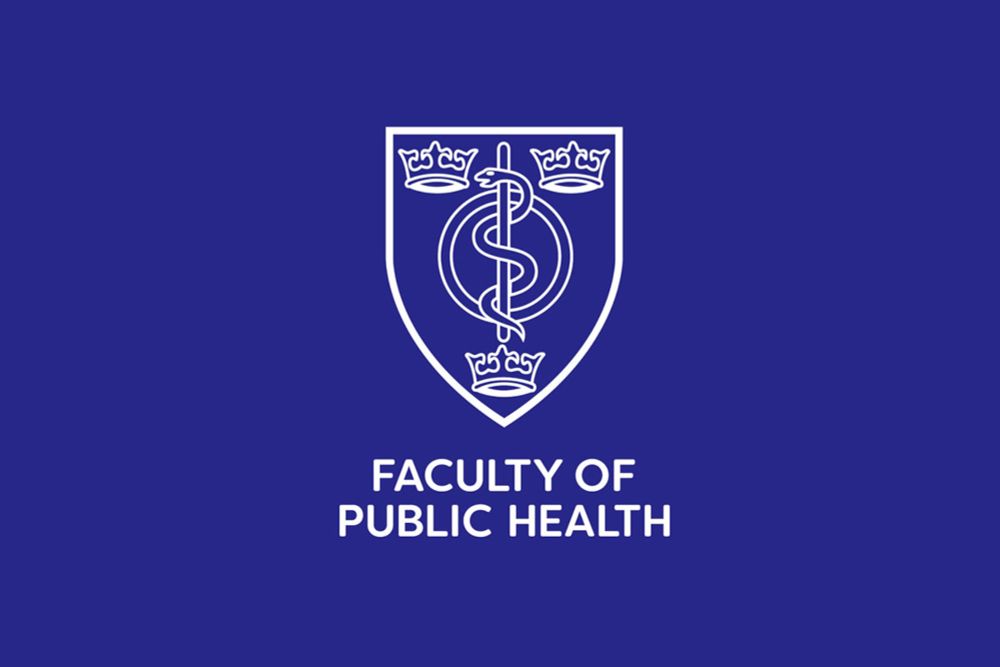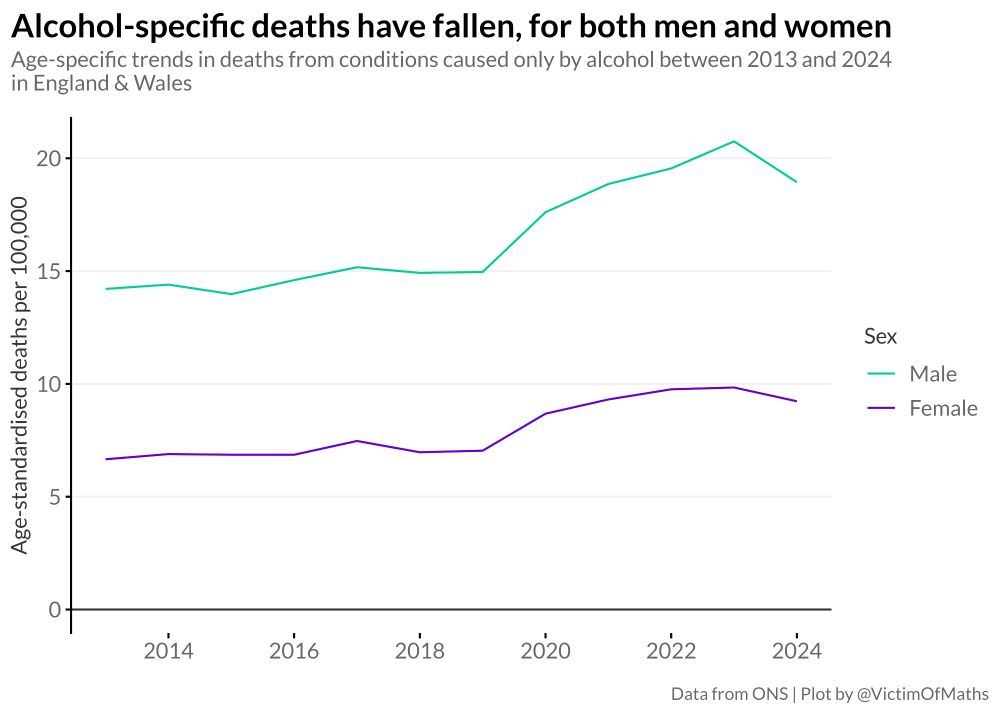
Colin Angus
@victimofmaths.bsky.social
7K followers
360 following
770 posts
Professor of Alcohol Policy in the Sheffield Addictions Research Group (@SARG-SCHARR), graph drawer, data botherer, cake eater, incompetent cyclist and intermittent birder.
Posts
Media
Videos
Starter Packs
I wrote a commentary on a new study comparing US and German mortality trends among “early adults” (age 25-44).
The pre-pandemic trends were wildly different (US far worse), but there’s some sign of increased alcohol deaths persisting since the pandemic in both countries. Concerning stuff.
The pre-pandemic trends were wildly different (US far worse), but there’s some sign of increased alcohol deaths persisting since the pandemic in both countries. Concerning stuff.

Early Adult Mortality in a Cross-National Context
US mortality has long been considered exceptional. Since the mid-1980s, mortality in the US has been higher than in other wealthy nations, and over the last 15 years, that disadvantage has grown.1,2 M...
jamanetwork.com
Reposted by Colin Angus















